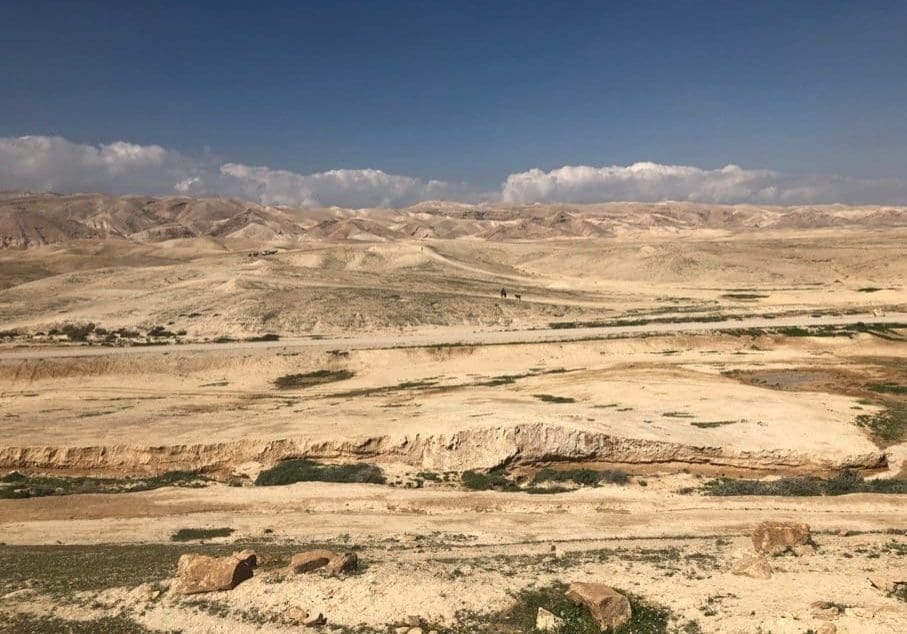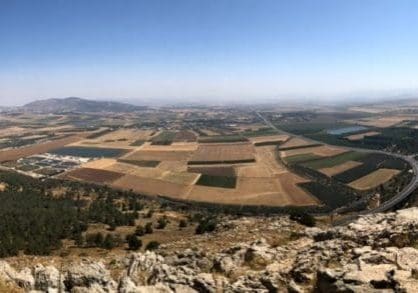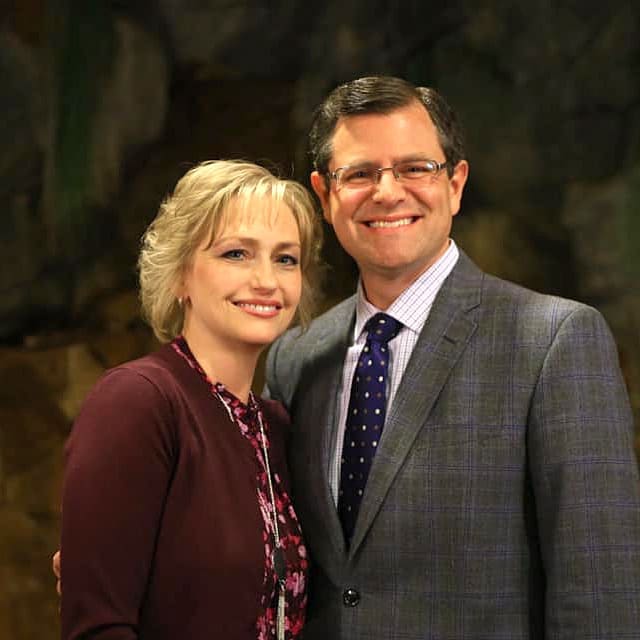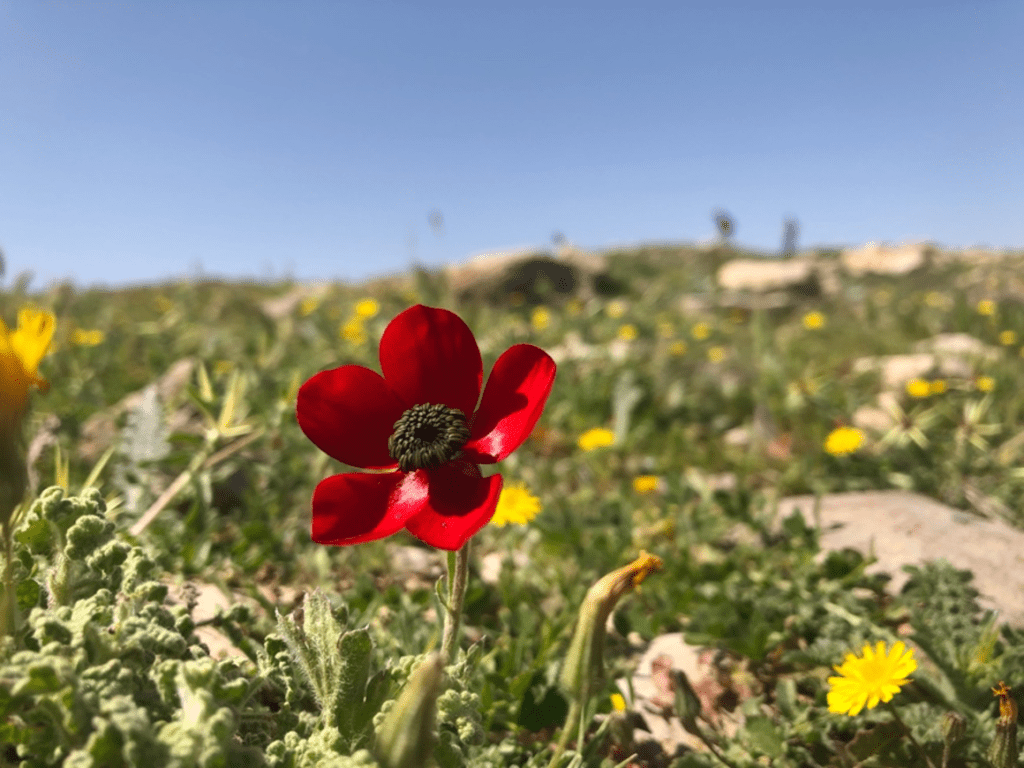
“Now it came to pass in the days when the judges ruled, that there was a famine in the land. And a certain man of Bethlehemjudah went to sojourn in the country of Moab, he, and his wife, and his two sons.” Ruth 1:1
Biblical Moab, in modern Jordan, is only about twenty-five miles from Bethlehem. On a clear day, the red-colored mountains of Moab are easily visible from Judah. This emphasizes the truth that the far country is often not far geographically, but spiritually. We are told that they stayed for ten years, but we are not told why. However, they stayed so long that Elimelech and his two sons never returned to their hometown of Bethlehem. They died and were buried in the land of Moab.
Ancient people believed that Scripture was a unitary whole, and that each additional book was a true record of events, but it was also a commentary on what came before. In this view, the book of Ruth is a commentary on the book of Judges. In spite of the fact that in Judges, “every man did that which was right in his own eyes,” Ruth shows us people who did what is right in God’s eyes, even when the surrounding cultures did not. Ruth vehemently said to Naomi “thy people shall be my people, and thy God my God.”
In the case of Ruth, we learn that even Gentiles, people outside of the children of Israel, and who have no right to the promised land, can still do what is right before God. In contrast to many people in the Bible, we are not shown any character flaws in either Ruth or Boaz. They are simply upright people who follow after God.
Ruth was a foreign, Canaanite widow scrabbling on the ground for dropped kernels of grain when Boaz saw her. Perhaps he was reminded of his own Canaanite mother the prostitute Rahab. However, we can deduce that Rahab became a godly woman because she raised such an exemplary son. In any case, God brought Boaz and Ruth together in a time of great apostasy and there in Bethlehem, they became ancestors of the kingly line of David.
Moab teaches us in Boaz and Ruth that we can live upright and godly lives surrounded by a culture that only wants to please itself. It shows us that God wants people who will worship Him and our past is not important. Even though Ruth was not from the chosen people, she has the honor of being an ancestor of King David, King Solomon, and King Jesus!
We also learn that leaving God’s will “to sojourn” outside of it is often permanent. The years pass, and before you know it, you are being buried where you meant to vacation. Or, like Naomi, you return bitter and broken, loudly blaming God when in reality it was the far country that did you harm. Does this describe you? If so, I urge you to return now before it is too late.
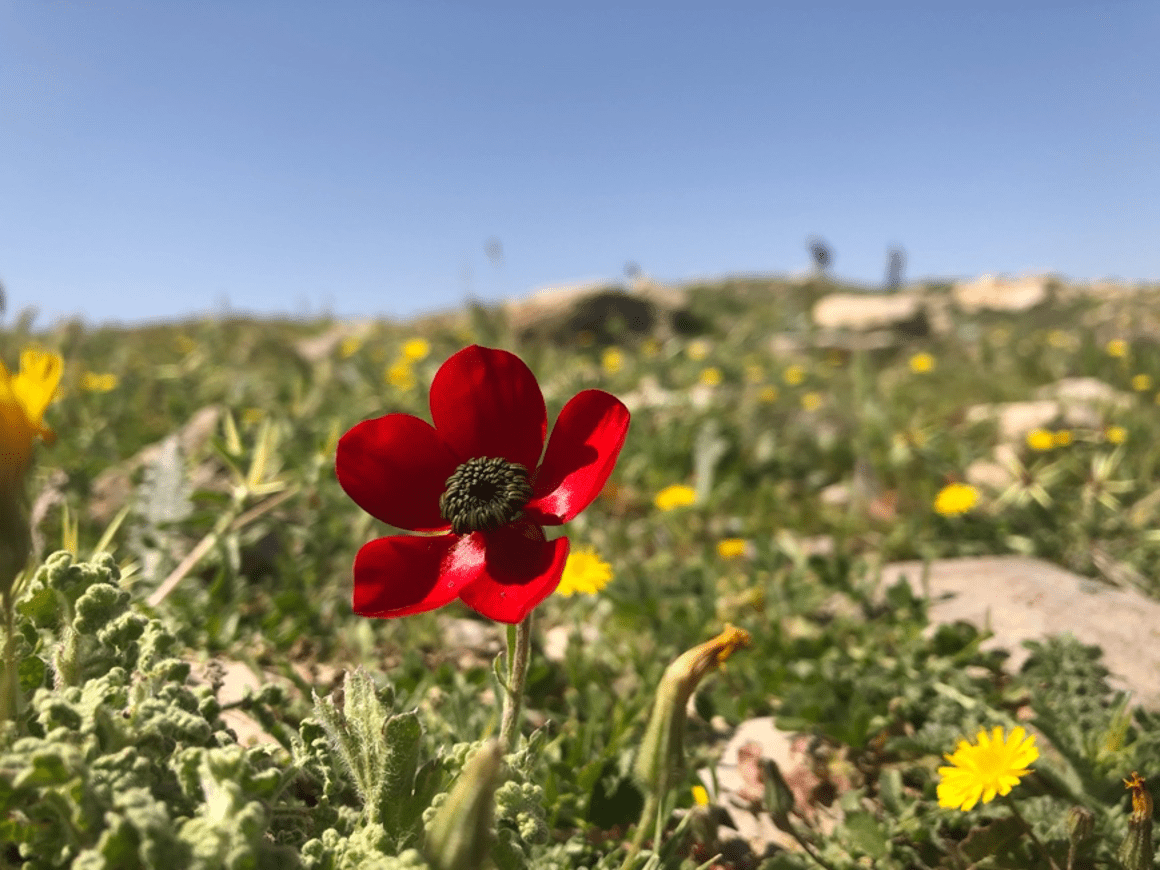
Wildflowers in biblical Moab. When she came back to Bethlehem, Naomi used some Hebrew wordplay. She said that “the Almighty hath dealt very bitterly with me.” (1:20) The Hebrew word she used for Almighty, שַׁדַּי is very close to the word used in verse 1:1 for “the country,” שְׂדֵי. In this way, the reader understands the true origin of Naomi’s bitter dealings: the country of Moab. Photo by John Buckner

